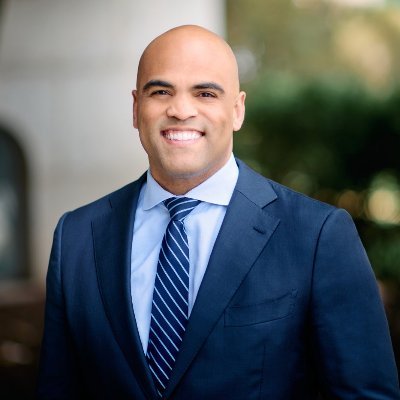HISD parents, Houston’s NAACP branch, the Houston Federation of Teachers, the Texas Gulf Coast Area Labor Federation and the Harris County Democratic and Republican Party spoke out against the bond, while Children at Risk, the Houston Food Bank, the Center for School Behavioral Health and the Boys & Girls Clubs of Greater Houston spoke in favor.
HISD’s bond proposes spending $2 billion for rebuilding and renovating schools and $1.35 billion for lead abatement, security upgrades, and heating, ventilation and air-conditioning improvements. It would also provide $1 billion to expand pre-K, build three new career and technical education centers and make technology upgrades without raising taxes.
HISD “has not sought a bond in 12 years, and conditions at too many schools do not meet current safety and health standards,” the district said in a statement. “HISD is proposing these investments — which will impact 273 schools in every neighborhood in the district — to make sure all students can learn in safe, healthy and effective learning environments.”
[…]
Bond supporters said Houston voters should look past the politics of state-appointed district leadership and vote in favor of the bond address long-standing issues that would improve student well-being and academic success.
“We’re going to be recruiting a superintendent, we’re going to be electing a new board and we’re going to be bringing them to Houston … and we want to make sure that we have our ducks in a row in terms of our infrastructure,” Children at Risk CEO Robert Sanborn said. “When I think about this, I think first and foremost, this is about the future of our children. … We know that kids need better facilities. They need better schools.”
Opponents said that while they support increased funding for public education, they believe voters should reject this bond due to a lack of trust in Miles and his administration, concerns over future financial accountability, and the state’s replacement of the elected school board with appointees in June 2023.
“We call upon the state government, Gov. Abbott, to end the TEA occupation of HISD and allow the restoration of a democratically elected school board to return to HISD immediately,” said Hany Khalil, director of the Texas Gulf Coast Area Labor Federation. “Once we have that in place, we will have, once again, trust in our school district, and we will then support a bond.”
You know where I stand on this. I will refer you once again to my interviews with Plácido Gómez and Dani Hernandez for the HISD bond, and Ruth Kravetz of CVPE against the HISD bond. I do not think this bond has the support to pass. I will be very interested to see if there is any (real) polling on this, and what the Chronicle’s endorsement is.
Parents fear curriculum changes as HISD puts elementary school principal on leave
The abrupt administrative leave of Harvard Elementary School’s principal has catalyzed parents’ concerns for protecting the school’s teachers and course offerings, including its International Baccalaureate curriculum.
Harvard families received a Monday evening message that principal Shelby Calabrese was on leave pending investigation — effective that day. Assistant principal Alejandra Perez would step into the role. It was unclear how long the leave or investigation would last.
Houston ISD cited board policy in its message that principals can be put on administrative leave by their direct supervisor or Superintendent for poor performance, absenteeism, or misconduct without specifying which applied to the principal.
Parents said the change in leadership spurred existing anxiety around HISD encroaching on the school’s choice of teaching methods and curriculum, as the district rapidly overhauls schools at the discretion of state-appointed Superintendent Mike Miles. Calabrese’s administrative leave intensified a larger concern whether the district will allow the school to teach the International Baccalaureate (IB) curriculum, which parents say is rooted in inquiry, being a well-rounded citizen, and critical thinking.
“We understand that sometimes employees need to be placed on leave, and that sometimes, very often, when they’re placed on leave, it’s for legitimate reasons,” parent Josh Brodbeck said. “And so, if that’s what’s happening here, we get it and we understand. But we’re very suspicious and concerned about the circumstances surrounding the sudden leave that Dr. C was placed on.”
[…]
Harvard was a B-rated school by the district’s own calculations of accountability ratings for 2024. A-through-F accountability ratings are determined by a school’s performance in student achievement; the school’s progress in academic growth and performance relative to other schools; and “closing the gaps” between student groups. (The Texas Education Agency’s release of official accountability ratings are on pause, under an injunction.)
Because of its rating, Harvard also has what HISD calls “Level 3 autonomy” according to a framework determined and enforced by HISD — this means that the school has the freedom to make decisions on programs, curriculum, and how it delivers instruction, for example. Harvard is a science, technology, engineering and math magnet and longtime IB school.
Central Division Superintendent Luz Martinez wrote in a Thursday email to families that Harvard is not a candidate for Miles’ reforms because of its B rating.
“Harvard did slip from an ‘A’ in 2023 to a ‘B’ in 2024, primarily because of students’ math scores,” Martinez wrote. “Also based on Harvard’s 2024 student achievement results there is 30% achievement gap between white and Hispanic students. We all want to see your students achieve their full potential, so HISD has provided increased instructional support, including coaching to help raise student math scores and close achievement gaps. The district fully supports continuous instructional improvement within Harvard’s IB program. There are no plans to eliminate it, while raising achievement.”
Harvard chose a list of curricular resources that teachers have the autonomy to use inside the IB framework, Martinez wrote.
“The six transdisciplinary IB themes guide teachers in designing units that usually last several weeks. These practices will continue,” she wrote, with a timeline for Harvard’s IB recertification.
Despite the autonomy level, parents are hearing of changes in the classroom from their children more in line with Miles’ New Education System (NES), which includes the use of timers in classes, frequent “Demonstrations of Learning” checks and quizzes, and a district-set curriculum largely made up of presentation slides and worksheets.
Parent Kristin Blomquist told the board of managers Thursday she hopes Calabrese will return, and the bigger issue is teachers are held to NES standards.
“We’ve had observers come in to grade staff based on the New Education System, which Harvard inherently is not, and receive low scores and are reprimanded for upholding the IB curriculum,” she said. “We are not NES. We are IB, and it’s creating confusion for educators and children and creates fear-based changes to learning in our high-performing schools.”
Parents’ vigilance toward district edicts ramped up after Miles’ visit to the campus, on Sept. 5 according to records. Brodbeck said one of his students started to see timers implemented in class after that visit.
“It feels to us like there is an attempt being made to backdoor it (NES curriculum and requirements) into a high-performing school like ours, and taking advantage of the fact that those are high-performing kids to, again, make some kind of political point. And we were assured that we were protected from NES,” Brodbeck said, noting his use of the word “protected” was intentional because Harvard parents feel the test-focused NES curriculum would be destructive to their children.
We know quite a few people whose kids went to Harvard. I was as surprised as anyone to hear this news – Harvard has always been a top performer and one of those schools that people buy houses in the Heights to get zoned to. If HISD and Mike Miles think they need to tinker with what Harvard is doing, they have definitely lost the plot. And while this is kind of a side issue in terms of the overall HISD drama, I highlighted this story so I could also highlight this one, about the Thursday night Board of Managers meeting, which drew a number of Harvard parents.
Harvard parents are furious, calling any aspects of the NES program with its “rote learning” the complete opposite of IB which they maintain encourages creative thinking.
“As a Harvard parent, I’m here because I’m concerned about the future of the IB program. The IB program is the reason we decided to send our son to Harvard and it truly is what makes Harvard a special school,” said parent Bridget Kushiyama. “While you say there are no plans to eliminate it, I worry about that because to be frank I do not trust a single one of you, especially Mike Miles.
“Although Harvard is not an NES school, teachers are required to implement the broad NES strategy. Not because they choose to but because they must in order to receive favorable observations. The IB curriculum nurtures and develops young students as caring, active participants in a lifelong journey of learning,” she said.
“In contrast. the NES model focuses on worksheets that lack critical thinking, relies on scripted lessons and prioritizes test scores only. Not the students.”
Parent Joanne Vest scoffed at the idea that lower math scores when the students were tested in January should have been used as a determinant of how well Harvard is educating its students.
“Have you forgotten there was no heat at school that day and only one functioning bathroom for over 600 students? Testing was not rescheduled and those students who showed up were told to put on their coats and gloves and test. Who could perform at A’s level in these conditions? This is not on Dr. C, this is on you. We are not fooled by your gaslighting and we will not give up.”
Jacob Margolin, another parent, started by saying that obviously he would not support the bond “until we have an elected and accountable school board. It’s basic Finance 101. You don’t give money to people who are unaccountable unless you want that money to be squandered.
“The people of Houston see what you’re doing. We see you manipulating the school grading system so that NES schools forced into a curriculum that resembles daily test prep appear to excel while all the other schools are forbidden from preparing their students for tests. We see you disappearing principals that defend their school’s teacher and records. We see you leveraging money to those who kowtow to your agenda and punishing those who don’t.”
Every one of these parents should be an easy Yes vote for the bonds. They are instead passionate opponents of them, because of Mike Miles. This is why I don’t believe the bonds will pass. You reap what you sow. More on that meeting here.
HISD’s Board of Managers names 13 people to bond oversight committee. Here’s who made the list.
Houston ISD’s state-appointed Board of Managers named 13 people and two alternates Friday to the committee that will oversee the district’s $4.4 billion school bond if voters approve the measure next month.
After more than three hours in closed session, the board named a group of people who represent “fields of law, finance, accounting, construction, engineering, government, education, edtech and energy” to the committee. All members are HISD residents, and six of them are past, current or future HISD parents, according to the district.
The Bond Oversight Committee will be responsible for monitoring progress of bond projects, providing regular updates to district leaders, communicating allegations of wrongdoing, potential waste or fraud to the superintendent and other oversight duties related to the bond.
Here’s the list of Houston residents selected to join the committee, listed alphabetically by first name:
I recognize two of the names offhand: Chris Brown, former Houston City Controller, and Wendell Robbins, who ran for HCC Trustee a few years ago (of course I interviewed him; that’s why I recognized his name). I’m sure they’re a fine group; I doubt anyone’s vote will be affected by them.
HISD’s school board approved Mike Miles’ first annual evaluation. How would you rate his performance?
Houston ISD’s Board of Managers approved state-appointed Superintendent Mike Miles’ first evaluation during their monthly board meeting Friday after hours of meeting in closed session.
Miles’ initial contract states that the board is responsible for assessing his annual performance every year by Sept. 1 based on his job duties and the board’s goals and priorities. The contract states that the board will hold the evaluation in closed session unless Miles and the board agree to hold it publicly.
The evaluation passed without discussion in an 8-1 vote, with board member Adam Rivon as the sole member to vote against the motion.
Alex Elizondo, HISD’s chief of public affairs and communications, said the evaluation is confidential and will not be released publicly, but Miles did qualify for an additional performance incentive pay based on the results and an amendment to his contract.
The incentive payment will be finalized in November, which is when HISD will release the total payment Miles was eligible for and the actual amount he received, Elizondo said. Miles currently earns an annual salary of $380,000, according to his contract.
The district did not include the template rubric for Miles’ evaluation in the board agenda, but it was provided to the Chronicle upon request. Unlike the initial contract, the rubric states that the board will conduct Miles’ evaluation on or before Oct. 15.
An amendment to Miles’ contract states that 60 percent of his evaluation is based on whether he met four specific student outcome goals and honored all three constraints that the board set in November, while the remaining 40 percent is based on how he scored on an executive leadership and vision rubric.
You can read the rest of the rubric if you want. Let’s just say that I would have been a No vote.




















